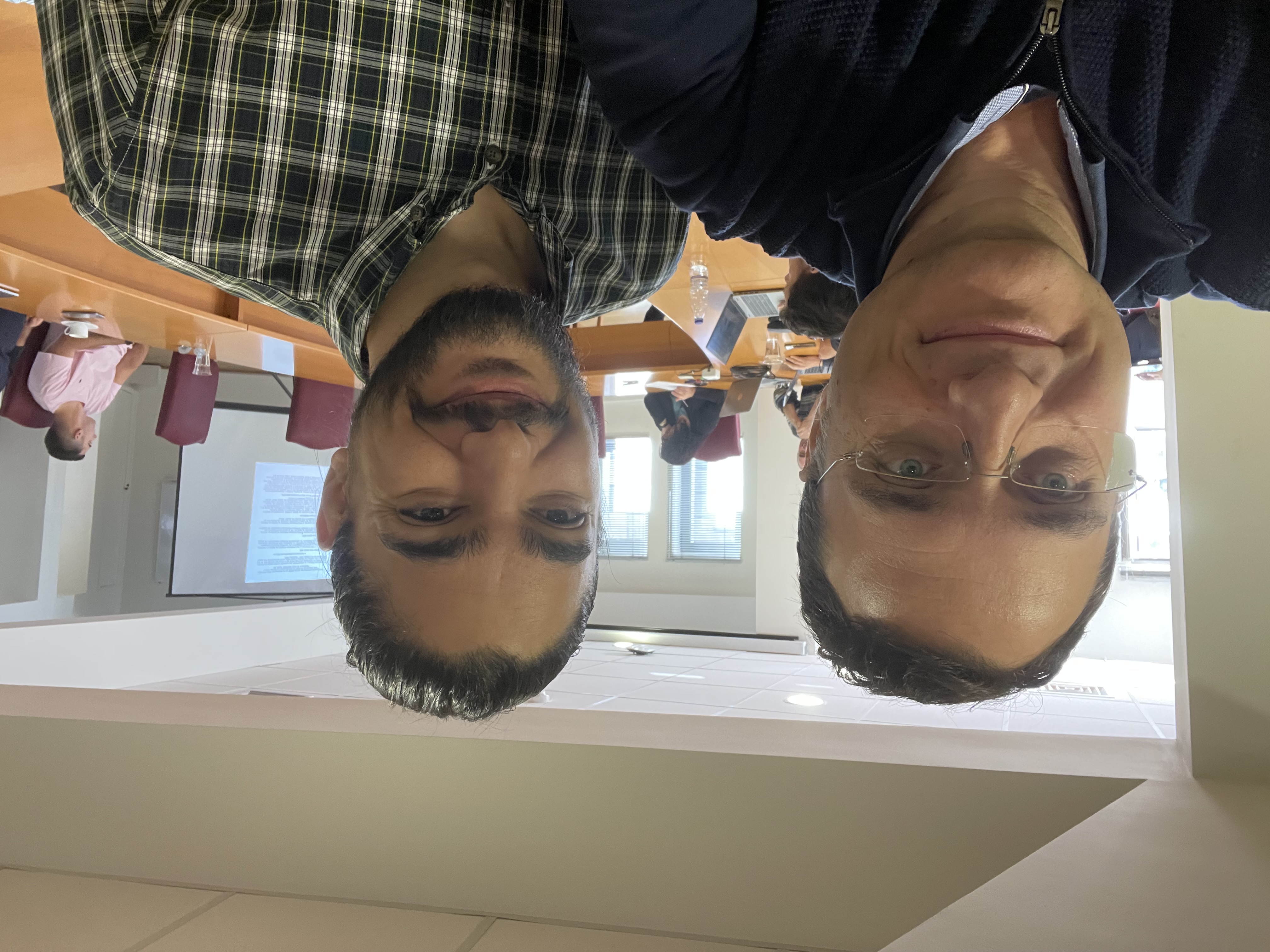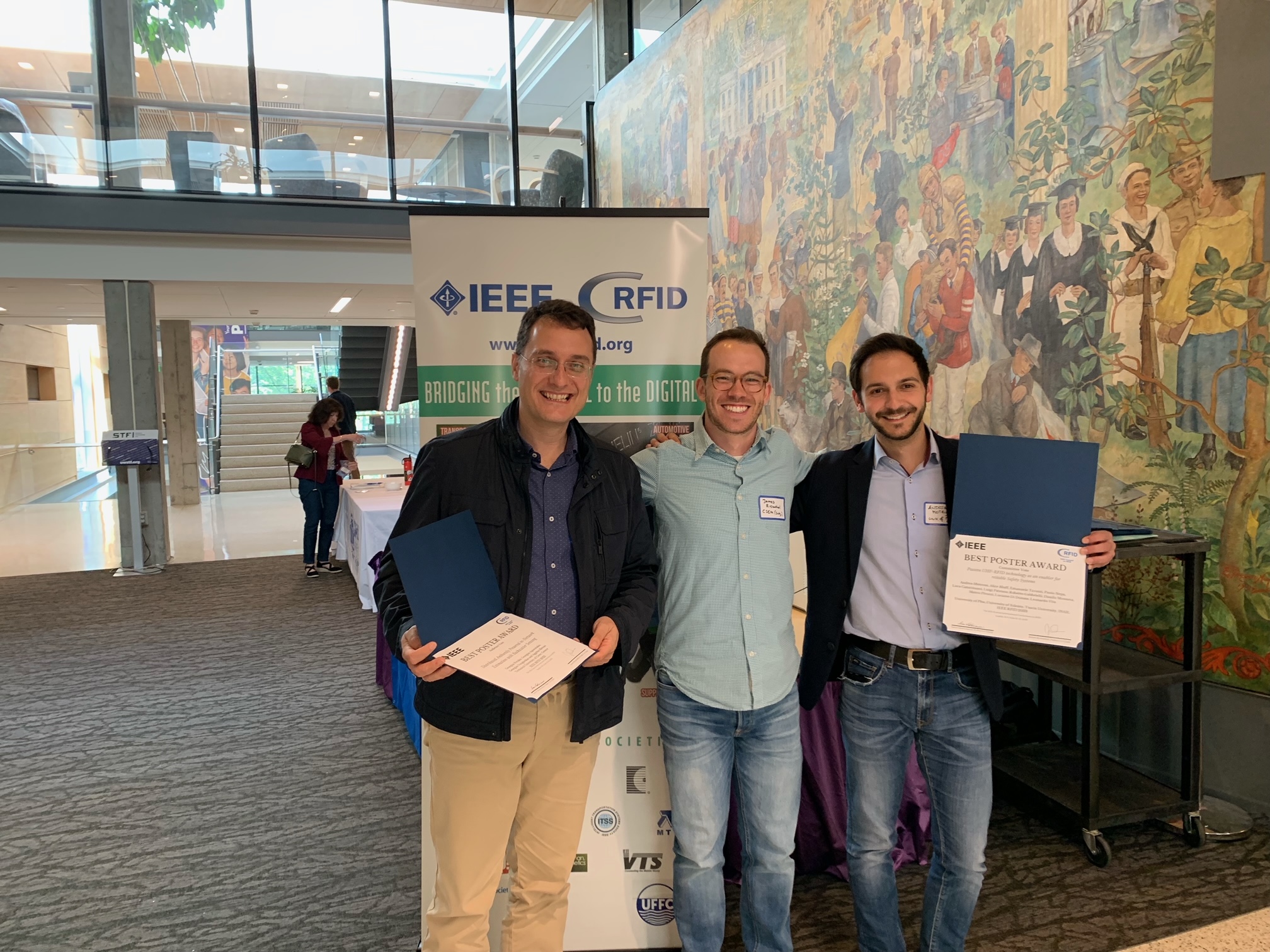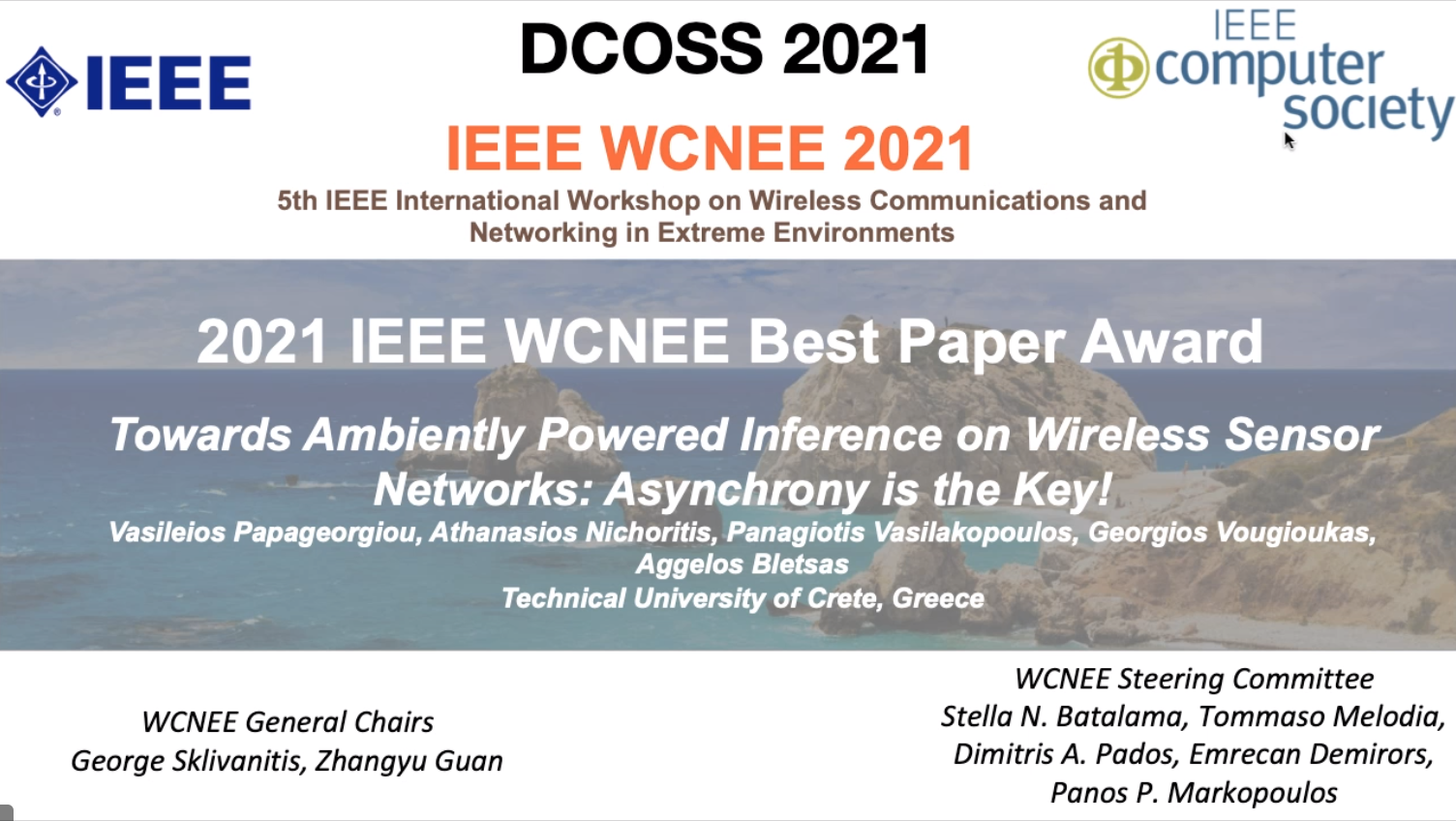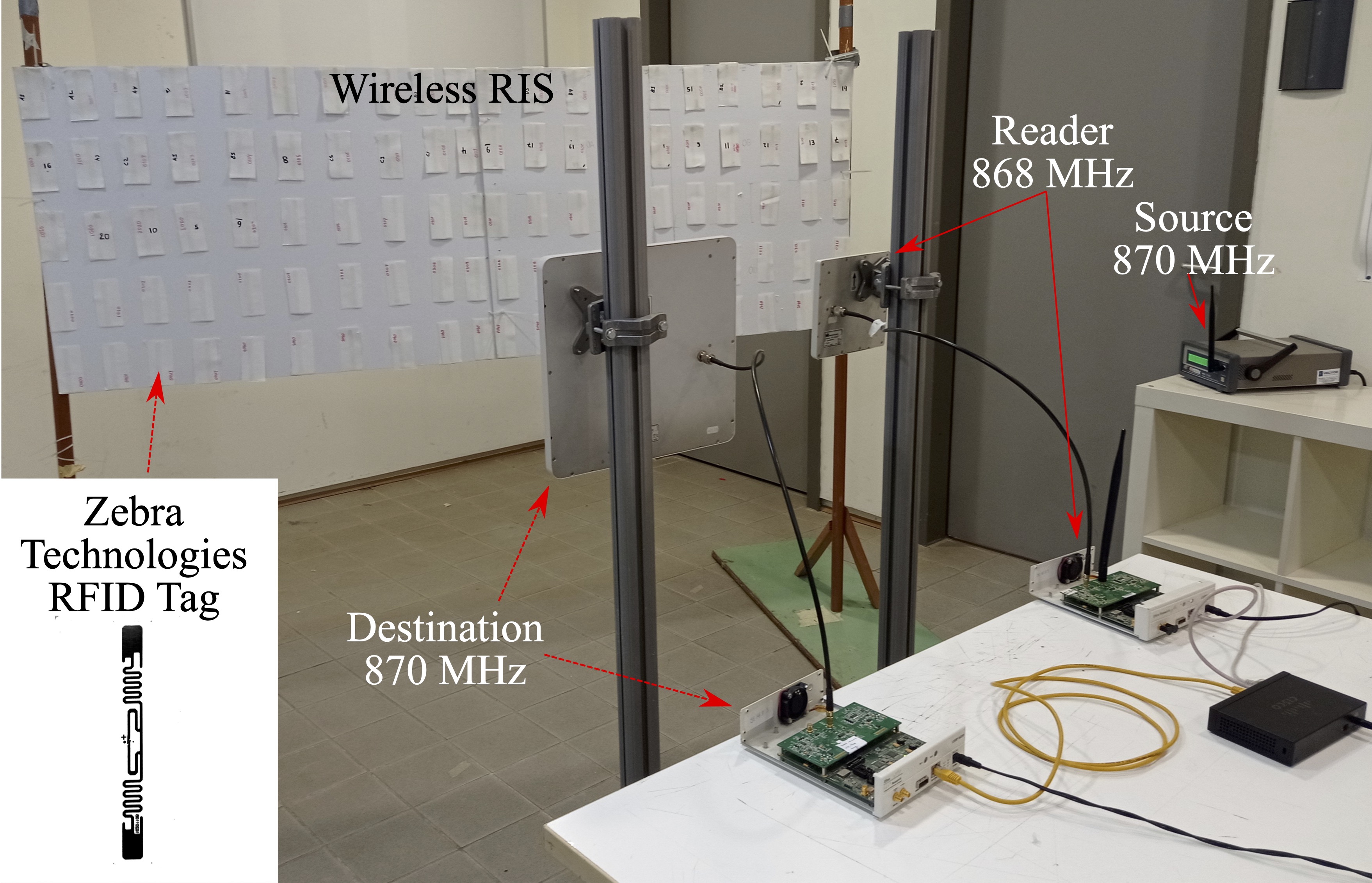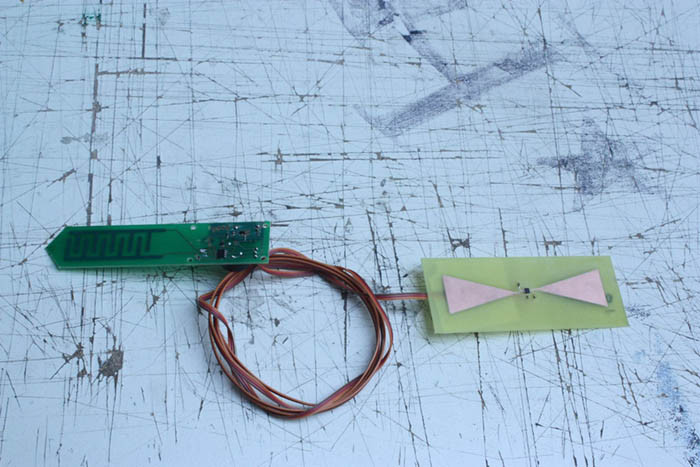Aggelos Bletsas was born and raised at the city of Chania, at the north-western part of the historic island of Crete, Greece. He received with excellence his diploma degree in Electrical and Computer Engineering from Aristotle University of Thessaloniki, Greece in 1998, and the M.S. and Ph.D. degrees in Media Arts and Sciences from Massachusetts Institute of Technology, Cambridge MA in 2001 and 2005, respectively.
He worked at Mitsubishi Electric Research Laboratories (MERL), Cambridge MA, first as a consultant and then as a Postdoctoral Fellow and at Radiocommunications Laboratory (RCL), Department of Physics, Aristotle University of Thessaloniki, as a visiting scientist. He joined School of Electrical and Computer Engineering (ECE), Technical University of Crete, in summer of 2009, as an Assistant Professor and promoted to tenured Associate Professor at the beginning of 2014 and to full Professor at the end of 2018 (the youngest full Professor in the School).
In January 2024, he joined Department of ECE and Wireless Information Network Laboratory (WINLAB), Rutgers University, as Full Professor. Rutgers is consistently ranked among the best 15 public universities in U.S. and belongs to the handful of universities established before the American Revolution. WINLAB is a highly-esteemed facility of wireless research for over 3 decades.
His research interests span the broad area of scalable wireless communication and networking, with emphasis on wireless sensor networks, backscatter radio, relay techniques, signal processing for communication, RF and bioelectric energy harvesting, radio hardware/software implementations for wireless transceivers and low cost sensor networks, RFID, time/frequency metrology, inference algorithms, bibliometrics and system integration (synthesis). His current vision and focus is on batteryless, ambiently-powered computers, scalable, ultra-low-cost, environmental sensing and Internet-of-Plants.
One of his Ph.D. thesis papers is ranked 1st in the Google Scholar Classic Papers in Computer Networks & Wireless Communication list. He is regularly listed in the annual, top 2% (in terms of citations) Stanford list and has been included in the list of the 45 most-influential Greek Scientists under 45 (years-of-age), compiled by Stanford’s Prof. J. Ioannidis.
His research projects have funded a significant number of talented graduate students, post-doctoral researchers and lab technicians, as well as the establishment of a rapid prototyping fabrication laboratory that allowed students to transform deep mathematical thinking to tangible, working systems. He owes his career to his brilliant students, who have set off to high-tech industry (e.g., Intracom Telecom, Intracom Defense) or spinoffs (e.g., Adveos) in Greece, as well as top institutions abroad, including (in random order) Airbus (Munich), Apple (Cupertino), Ericsson (Stockholm), Amazon (Luxembourg, Seattle, London, Berlin), Bell Labs (Murray Hill), Bank of America (Bromley, UK), Georgia Tech, Univ. of Washington, Univ. of California-Irvine, Univ. of Minnesota, Univ. of Buffalo, Univ. of Virginia, Univ. of Cambridge, MIT, Univ. of Wisconsin-Madison, Univ. of Maryland, KU Leuven, KTH.
He is IEEE Fellow for "fundamental contributions to cooperative relaying and backscatter communication networks" and Technical Program Committee (TPC) member of major IEEE conferences. He currently serves as Area Editor, area of Antennas, Channel Models and Location (ACML) of IEEE Transactions on Wireless Communications (TWC). He also served as Associate Editor of IEEE Wireless Communications Letters, since their foundation, from 2011 until summer of 2016 and for IEEE Transactions on Wireless Communications, from summer of 2015 until beginning of 2021. He was the national representative and management committee (MC) member in the EU COST IC1301 Action "Wireless Power Transmission for Sustainable Electronics (WIPE)". He holds four patents from USPTO, two of them issued while working in Greece.
Dr. Bletsas is a 2022-2024 IEEE ComSoc Distinguished Lecturer (DL) and a 2023-2025 IEEE RFID Council (CRFID) Distinguished Lecturer (DL). He was the co-recipient
of IEEE Communications Society 2008 Marconi Prize Paper Award
in Wireless Communications, best paper distinction in IEEE International Symposium on Wireless Communication Systems (ISWCS), September 2009, Siena, Italy, best student paper award in IEEE International Conference on RFID Technology & Applications (RFID-TA), September 2011, Sitges, Spain, best paper distinction in IEEE Sensors Conference (SENSORS), November 2013, Baltimore, USA, best student paper award-SPCOM track and conference-wide best student paper award, IEEE International Conference on Acoustics, Speech and Signal Processing (ICASSP), April 2015, Brisbane, Australia, best student paper award in IEEE International Conference on RFID Technology and Applications (RFID-TA), September 2017, Warsaw, Poland, best student paper award in IEEE International Conference on Modern Circuits and System Technologies for Electronics and Communications (MOCAST), May 2018, Thessaloniki, Greece, best paper award, IEEE International Workshop on Wireless Communications and Networking in Extreme Environments (WCNEE), July 2021 (part of IEEE DCOSS 2021) and best poster award, IEEE Conference on RFID, June 2023, Seattle, USA. He is also proud of his students who were winners for two consecutive years of the 2009-2011 and 2011-2012 best Diploma Thesis contest among all Greek Universities on "Advanced Wireless Systems", awarded by IEEE VTS/AES joint Greek Chapter. In December 2020, his students won the Second Prize in the 2020 IEEE ComSoc "Communications Technology Changing the World" Student Competition. Prof. Bletsas is the recipient of the 2012-2013 Technical Univ. of Crete Research Excellence Award [honorary speech on "Civic/Academic Capital and Research"]. 
Aug. 2024: Real-time, distributed multi-antenna (multistatic) localization! In sharp contrast to prior art, no signal generator or specialized carrier synchronization hardware (among the antennas) is utilized. Demo simply employs multiple, distributed and unsychronized, software-defined radios (SDR) and smart, real-time signal processing.
Jan. 2024: Joined as Full Professor, the Dept. of ECE and WINLAB, Rutgers University, The State University of New Jersey, USA.
Dec. 2023: Elevated to IEEE Fellow, "for contributions to cooperative relaying and backscatter communication networks". Many thanks to my nominator, my recommenders and endorsers, IEEE ComSoc and Fellows committees and of course to my students and collaborators. Feeling very proud for such achievement, the only Fellow elevation this year for an IEEE member working in Greece.
Dec. 2023: 2024 IEEE ComSoc Distinguished Lecturer (DL) as well as 2024-2025 IEEE RFID Council (CRFID) Distinguished Lecturer (DL). Kindly email me for list of talk topics. Big wholehearted thank you to ComSoc and CRFID DL selection committees and to my students and collaborators.
Oct. 2023: Evangelos Giannelos successful Ph.D Defense! Evangelos eloquently supported his Ph.D. thesis on “Intelligent Wireless Networks and Robots for Low-Cost Battery-Less Sensing and Localization” offering impressive demonstrations on indoor RFID localization and outdoor interrogation of backscatter radio sensors with moving robots and UAVs. Congratulations to Evangelos for such great work!
June 2023: IEEE Conference on RFID Best Poster Award at IEEE RFID Conference, June 2023, Seattle, USA, by audience vote! The work presented our demo for in-network estimation using ambient power, processing information from batteryless backscatter radio sensors: Georgios Perakis, Georgios Apostolakis, Georgios Vougioukas and Aggelos Bletsas, “Distributed Ambiently Powered in-Network Estimation with Backscatter Sensing”.
Jun. 2022: Area Editor, IEEE Transactions on Wireless Communications (TWC). Area of Antennas, Channel Model and Location (ACML). Many thanks to EiC and past Area Editor. Feeling very proud to succeed and work with researchers I truly admire.
Feb. 2022: 2022-2023 IEEE ComSoc Distinguished Lecturer (DL). Kindly check DL page for my talk topics and do not hesitate to email me. Big wholehearted thank you to ComSoc DL selection committee and to my students and collaborators.
Jul. 2021: IEEE WCNEE 2021 Best Paper Award! Group work on ambiently-powered sensor wireless network (WSN) inference received best paper award: V. Papageorgiou, A. Nichoritis, P. Vasilakopoulos, G. Vougioukas and A. Bletsas, "Towards Ambiently Powered Inference on Wireless Sensor Networks: Asynchrony is the Key!". The paper offers a first step/proof-of-concept. Distributed matrix inversion and consensus algorithms were demonstrated; each WSN node consisted of a 32-bit microprocessor with an embedded radio, solely powered by custom, solar energy harvesting circuits.
May 2021: Intelligently Wireless Batteryless Reconfigurable Surface (RIS)! Perhaps the first completely wireless and batteryless RIS in the world! Paper became available at arxiv (May 2021) and has been accepted for presentation at IEEE Globecom, Dec. 2021, Madrid Spain.
Dec. 2020: Georgios Vougioukas Ph.D. Defense! Despite Covid difficulties, Georgios defended successfully (and brilliantly) his thesis on "Scatter Radio Relaying and Applications". Theory and demonstrations relevant to batteryless, ultra-low power sensing, localization and passive beamforming were much appreciated by a committee of international, renowned experts from Europe and USA. Congratulations to Georgios, we are extremely proud of him!
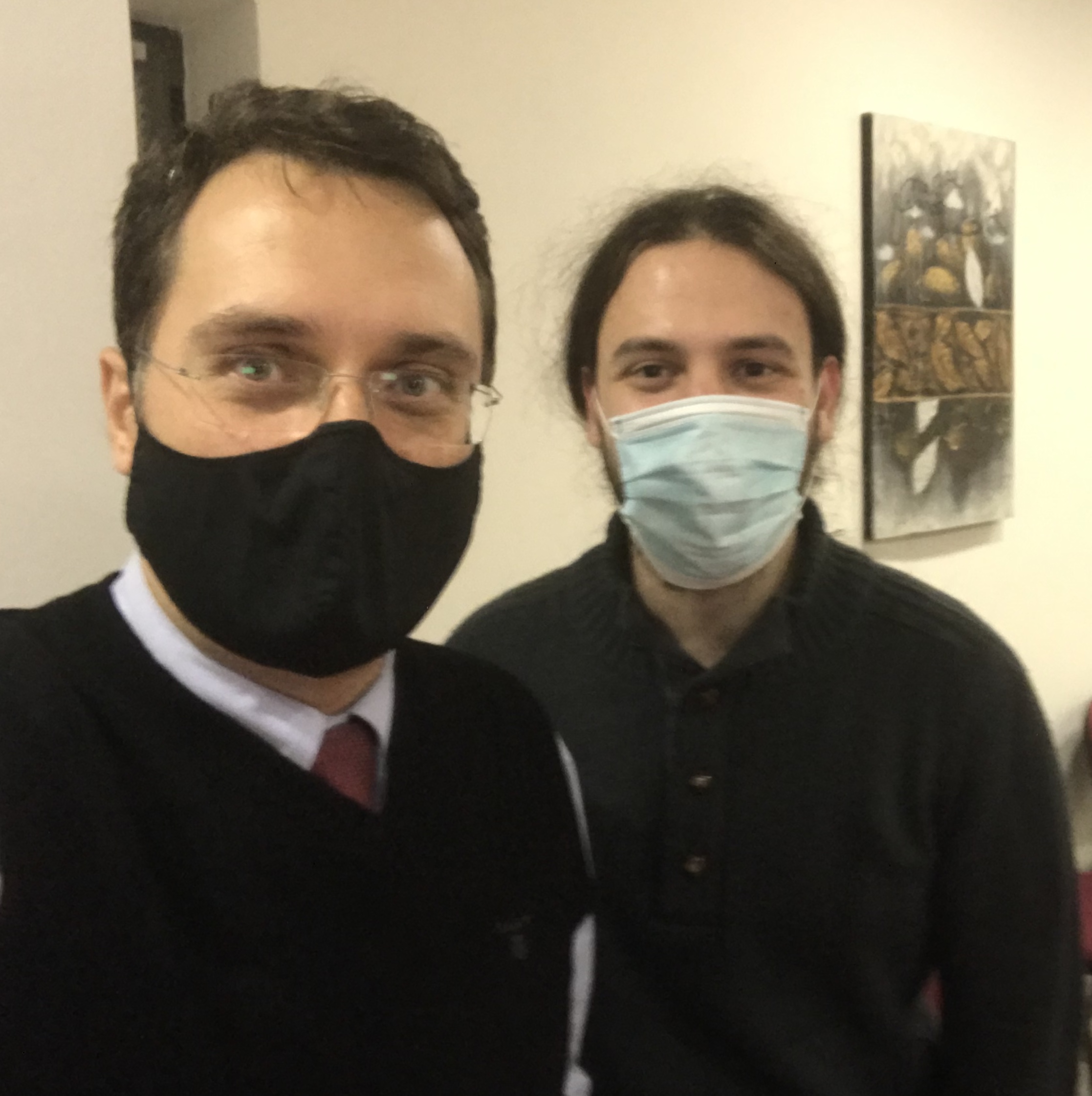
Dec. 2020: Second Prize in the 2020 IEEE ComSoc "Communications Technology Changing the World" Student Competition! Congratulations to Georgios Vougioukas, Nikolaos Ntantidakis and Emmanouil Andrianakis for the project "Recycling Radio Waves for the Wide Adoption of Precision Agriculture". Evaluation was conducted by 55 experts nominated by the Competition Co-Chairs and by ComSoc Technical Committees, covering all areas of ComSoc scope. The evaluation process was organized in two rounds. In the first round, the projects were ranked according to five different aspects, namely: social impact, technical content, originality, practical applicability and results, quality of presentation. In the second round, committee members voted for the best two among best 14 ranked in the first phase. 54 university teams around the world participated in the 2020 competition. Congratulations to Georgios, Nikos and Emmanouil, that was a great honour!
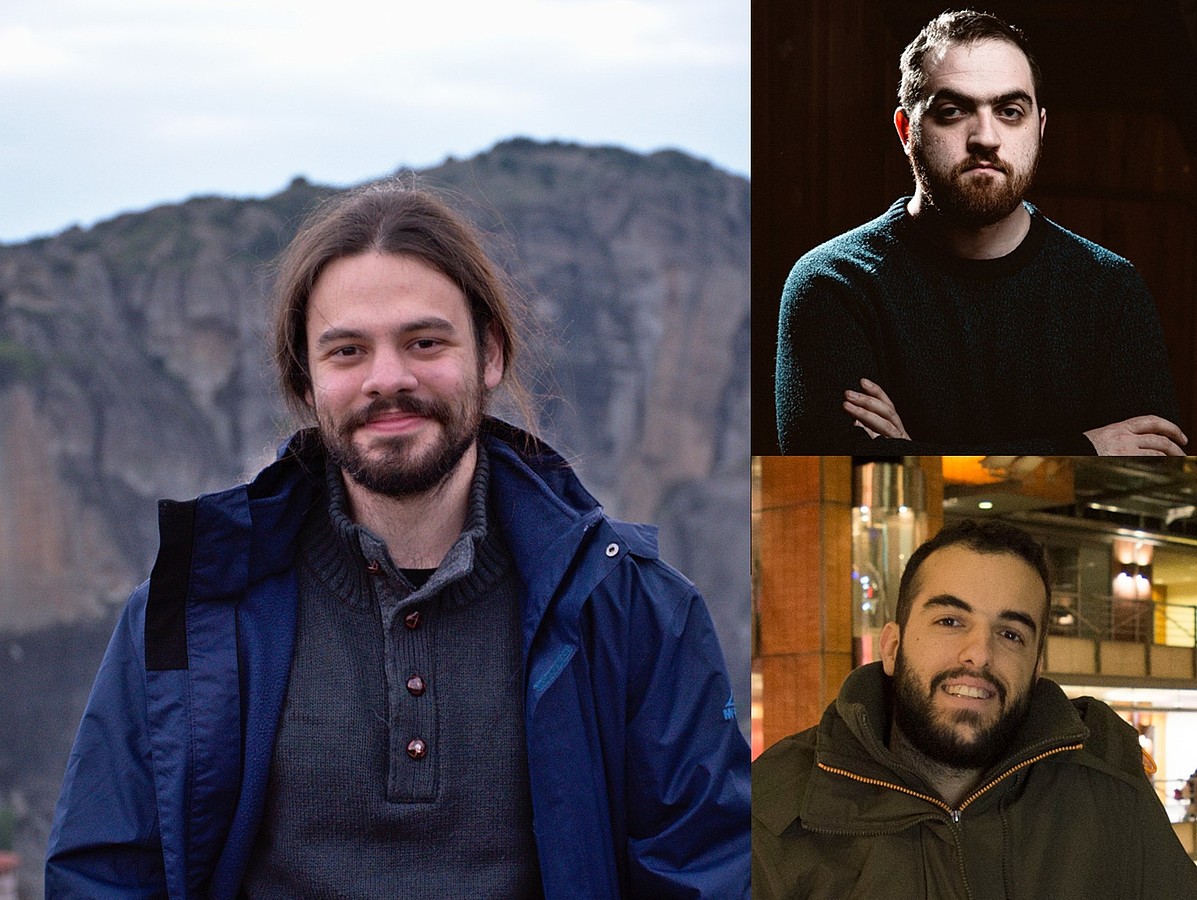
Soil Whistle (video released)! Using FM radio signals to (wirelessly) measure, convey and receive soil moisture for smart irrigation! The sensor's information can be wirelessly received by any commodity FM receiver; sensor is accurate and both low-power and low-energy! Check usability study in Germany and Greece.
Oct. 2020 (video released): Ethernet RFID! Smart detection algorithms and low-cost software-defined radios convert your Ethernet network to a distributed RFID reader! Could the same principles be applied to 5G?
Oct. 2020 (video released): Interrogation of Backscatter Sensors with a Drone! Interrogating TUC's novel sensors with an aerial drone.
Sept. 2020: U.S. Patent & Trademark Office (USPTO) patent 10763990 issued!
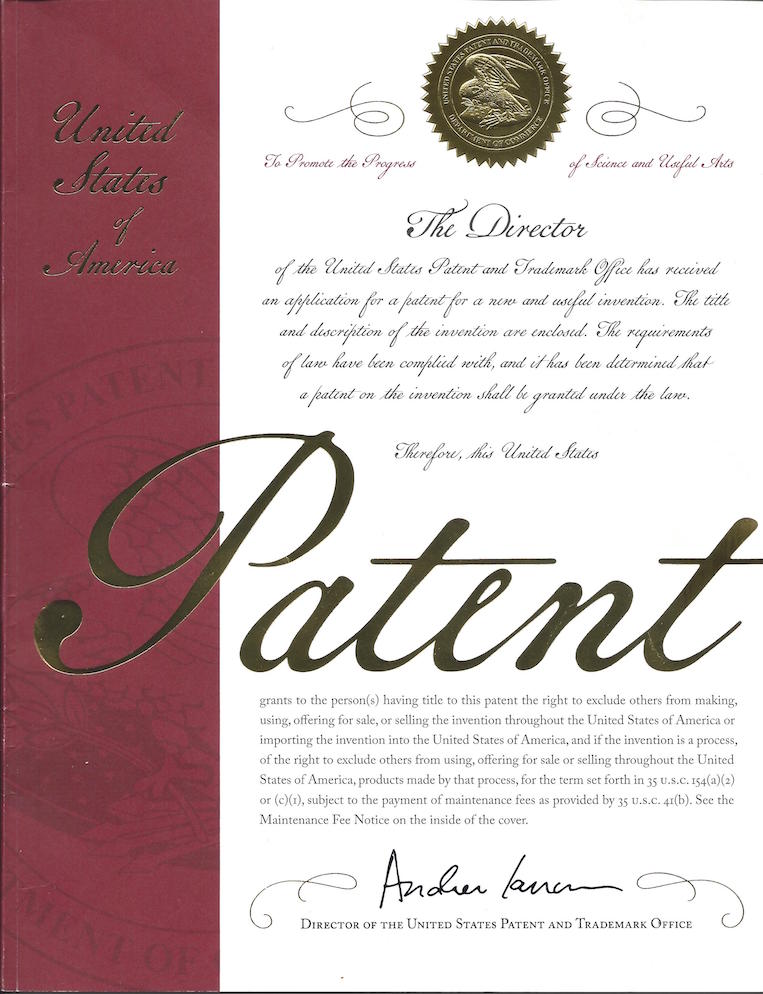
Spring 2020: 2 Ph.D. candidate positions, fully funded for 36 months, are available on Inference Algorithms and Embedded Hardware/Analog Electronics. Research will be conducted on Batteryless, Ambiently-Powered Internet-of-Things-That-Think.
Aug. 2019: U.S. Patent & Trademark Office (USPTO) patent 10395162 issued!

Aug. 2019: ``Internet of Plants grassroots in Crete'' front page story in Liberal newspaper!

Lemon-powered ambient backscatter sensor! Demo video of the sensor that inspired the Scientific American article (needs audio). USPTO patent and paper award have been granted on this!
June 2019: Groups' research at Scientific American: "Internet of Plants: Scientists turn lemons into tiny ``radio stations'' that signal when a tree needs watering".
Existing electromagnetic signals are recycled and re-modulated with scatter radio, conveying environmental sensing information that can be picked up by commodity receivers, including existing smartphones, without any modifications. Sensors are so simple and thin in terms of hardware (due to recycling of existing signals), that can be powered by a lemon. Kindly see math and hardware in JSAC 2019 or RFID-TA 2017 papers and references therein.

June 2019: Completed 10 years at TUC! During those years, a brilliant group of Aggelos' students set off to high-tech industry (e.g., Intracom Telecom) or spinoffs in Greece, as well as top institutions abroad, including (in random order) Apple (Cupertino), Georgia Tech, Bell Labs (Murray Hill), Univ. of Washington, Univ. of California-Irvine, Univ. of Minnesota, Univ. of Buffalo, Univ. of Virginia, Univ. of Cambridge, MIT. Critical know-how was produced, as well as USPTO patents and open-source software / middleware, new teaching and research facilities were established, undergraduate and graduate curriculums were enriched, several best paper awards and major international distinctions were attracted, first class journal publications produced, while graduate students were (fully) financially supported.
Dec. 2018: Promoted to Full Professor! Unanimously elected Full Professor at TU Crete. Effective in Feb. 1, 2019. Big, wholehearted thank you to my students, colleagues, advisors, professors, teachers and of course, my family. Great honour, feeling very proud!
Sept. 2018: Making parents proud! Stanford's Prof. J. Ioannidis research on brain drain, featured in front page of the highest circulation newspaper in Greece, included Aggelos as one of the 45 most influential Greek researchers, under the age of 45, based on citation data. Only 5 out of 45 work in Greek Institutions (Aggelos was one of them)!
Disclaimer: citation data are useful but they cannot (and should not) replace evaluation based on actually reading the content of the papers!

Sept. 2018: overview paper in IEEE Signal Processing Magazine is out: "The Art of Signal Processing in Backscatter Radio for μWatt (or less) Internet-of-Things (IoT)".
May 2018: Best Student Paper Award at IEEE MOCAST 2018: M. Ouroutzoglou, A. Bletsas and G. N. Karystinos, "Intelligent Noncoherent Sequence equals Coherent Detection: Experimental Proof in Industrial RFID". Michail Ouroutzoglou is currently a 4th-year undergraduate student at the TUC School of ECE!
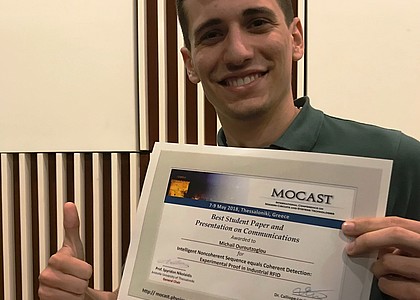
April 2018: ``Hot Topics in RFID'' Invited Speaker, "Batteryless, Ambiently-Powered Internet of Things That Think: An Asynchronous Message Passing Approach", IEEE RFID 2018, April 12, Orlando, FL. Slides available here or here.
Dec. 2017: Panos Alevizos officially completes his Ph.D! Panos is the first Ph.D. graduate of the group. Thesis document ``Intelligent scatter radio, RF harvesting analysis, and resource allocation for ultra-low-power Internet-of-Things'' can be found here. Congratulations to Dr. Panos Alevizos, a shining, rising star in wireless com!
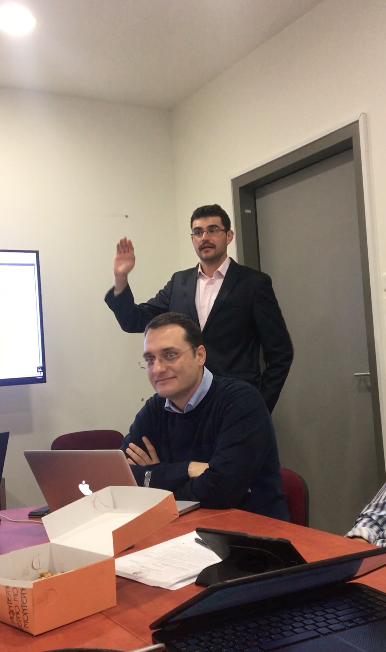
Nov. 2017: 2-hour invited lecture at IDEA League Doctoral School on Transiently Powered Computing (TPC 2017), TU Delft, Netherlands, on ``Intelligent Signal Processing for Ultra-low-power Communications: Backscatter and Beyond''.
Sept. 2017: Best Student Paper Award at IEEE RFID-TA 2017: G. Vougioukas and A. Bletsas, "24μW 26m Range Batteryless Backscatter Sensors with FM Remodulation and Selection Diversity".
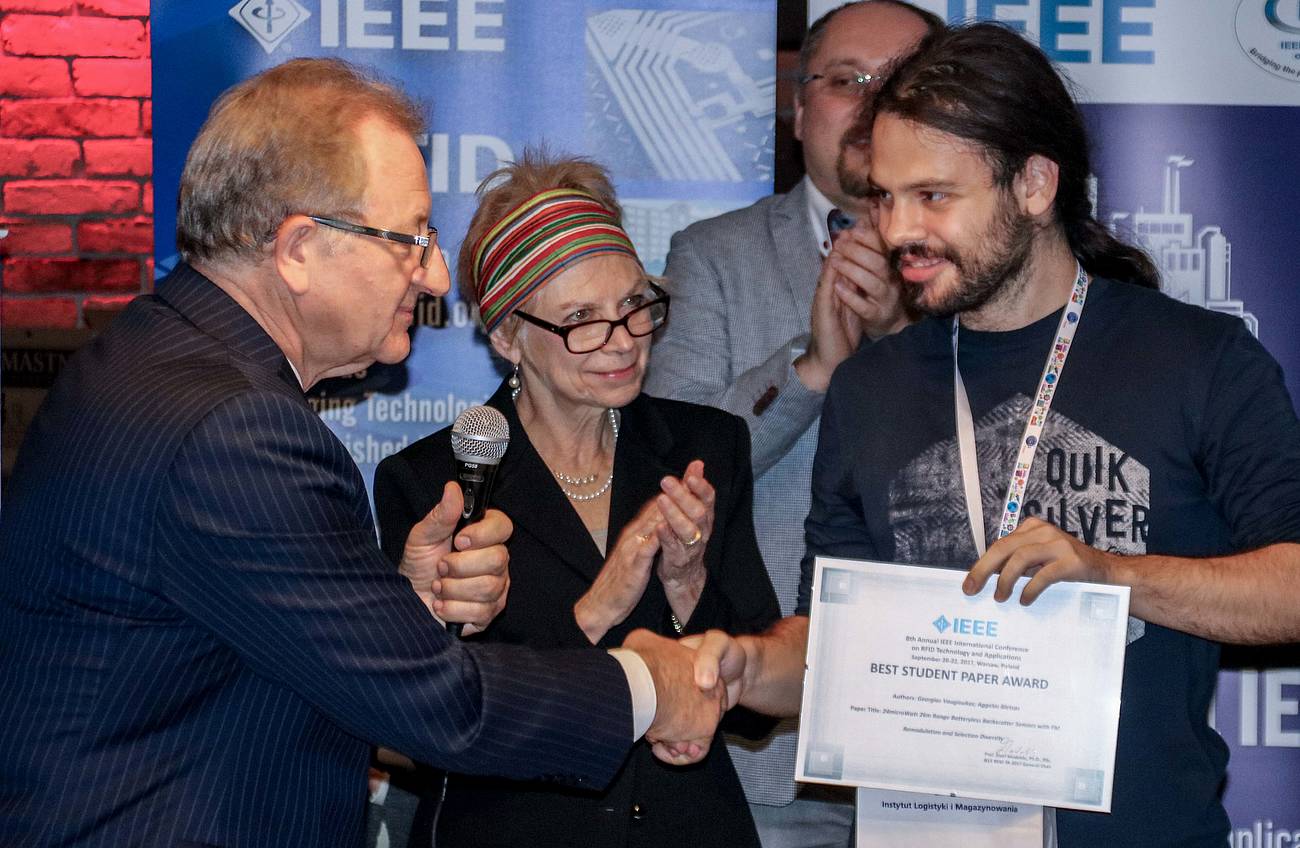
June 2017: Google Scholar included 2006 PhD thesis paper as CLASSIC in the Computer Networks & Wireless Communication list, ranking it 1st!
Feb. 2017: WCL 2014 paper in a list of 3 WCL papers among all WCL papers published in the 2014-2016 period, nominated by the journal for the 2017 ComSoc Heinrich Hertz Award, Feb. 2017.
Jan. 2017: Low-tech hardware, high-tech algorithms: FlockMop, i.e., cooperative mobile network targeting flock of smart (but cheap) cooperating mops/vacuum cleaners! See video below from the term project of students in my fall 2016-2017 undergraduate "TEL412 Analysis and Design (Synthesis) of Telecom Modules" class!
Group team ASTRAPI wins "Seeding Ideas Harvesting the Future" TUC 2016 Innovation Contest, July 2016!
First Batteryless Digital Environmental Bistatic BackScatter Sensor Network: short packet communication with scatter radio principles, forward error correction and non-coherent decoding, with a plethora of batteryless sensors!
Simple Scatter Radio Sensor with Capacitive Principles!
"Reinventing Wireless with Scatter Radio", COST IC1301 RF Energy Harvesting for Sustainable Electronics Management Committee Meeting, Sept. 2015, Thessaloniki, Greece.
Coherent processing paper and software code for Reception of Gen2 RFIDs and computational RFIDs (sensors) in software-defined radio USRP2 (with a single card), available online.
Conference-wide Best Student Paper Award, IEEE ICASSP 2015, Apr. 2015: P.N. Alevizos, Y. Fountzoulas, G.N. Karystinos and A. Bletsas, "Noncoherent Sequence Detection of Orthogonally Modulated Signals in Flat Fading with Log-Linear Complexity."
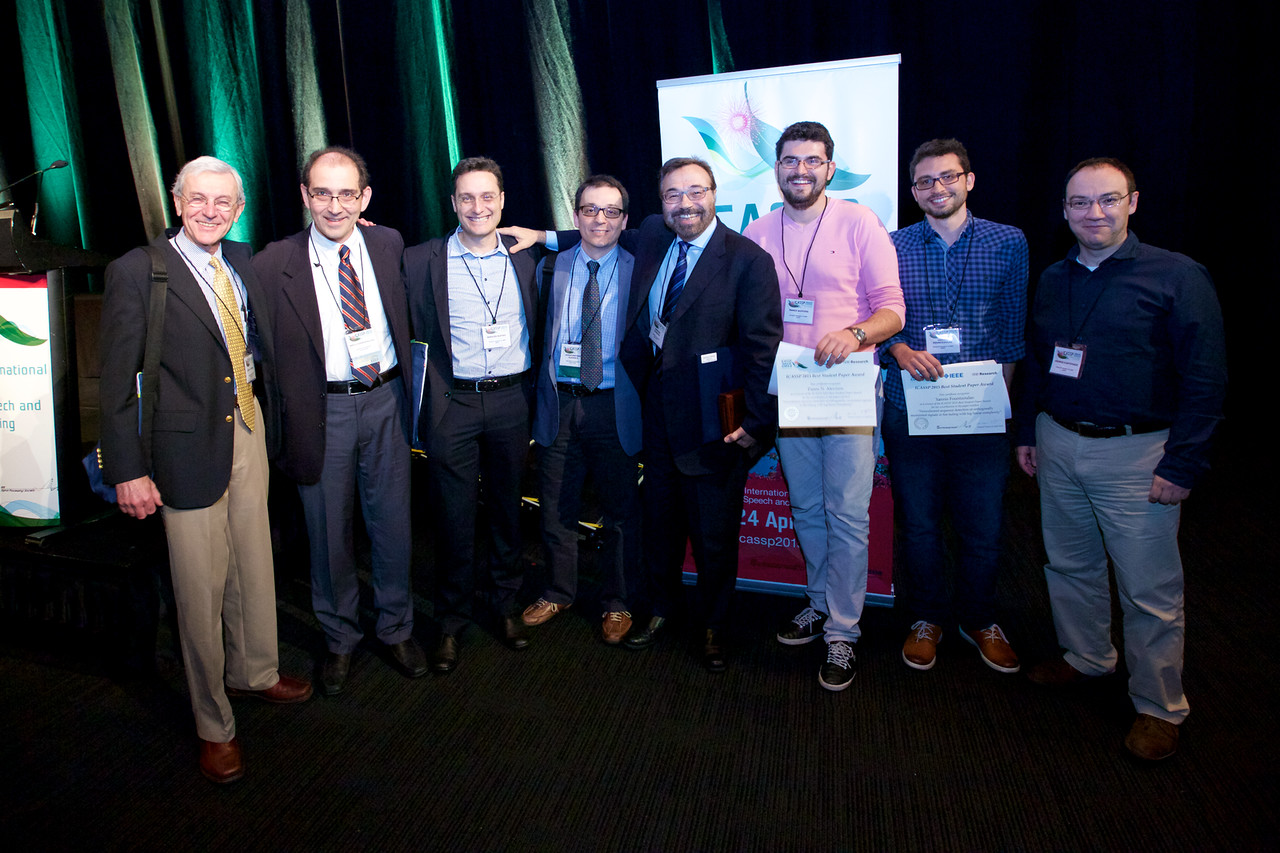
Bistatic Scatter Radio Demo: How many transistors do you need to wirelessly network a tomato greenhouse?
